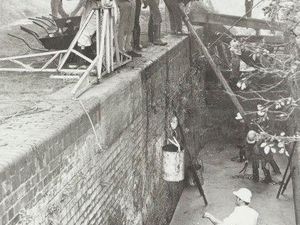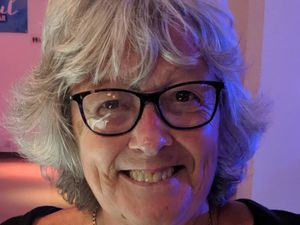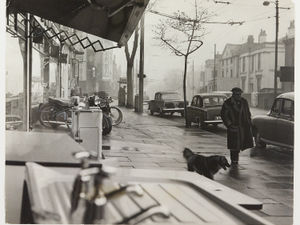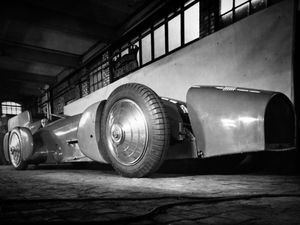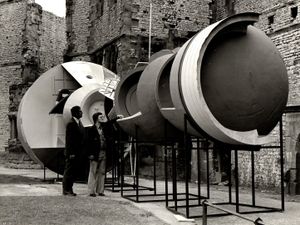Family milk feud from P.G. Wodehouse's Shropshire days
Almost immediately after their arrival in Shropshire, the family of P.G. Wodehouse, the celebrated humorist and novelist, became embroiled in a "milk war" with another family from about a mile away.
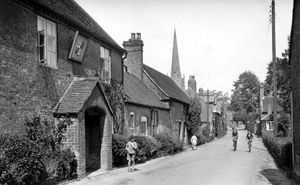
Wodehouse spent his teenage years at the Old House at Stableford, near Bridgnorth, and according to Jane Smith, who has written a new book about the history of the Worfield parish, some of the locals must have found their way into his books, albeit with changed names.
Wodehouse, who was known as Plum, told one interviewer of the family feud over milk.
"We quarrelled with them two days after we arrived and never spoke to them again. It was milk that caused the rift. At least they said it was milk... and we said it was skim-milk. Harsh words and dirty looks passed to and fro..."
Jane said Wodehouse's father moved to the Old House in 1895 after retiring from the Hong Kong Civil Service. Plum was at boarding school but came home in the holidays, and later went to work in a bank, writing novels in his spare time.
Plum, she says, found it the perfect place to write.
"I have never found better," he said.
Sibell Corbett from Stableford was one of the few to be woven into one of Wodehouse's stories by name. Drawing on research by N.T.P. Murphy, Jane tells how Sibell reared ducks for shooting, but according to Wodehouse she treated them so well that when they were sold they would approach their would-be assassins for food rather than flying away.
The Wodehouse family left Stableford in 1905.
Jane's book is called "Worfield: The History of a Shropshire Parish From Earliest Times," and her researches have uncovered fascinating aspects of the parish's history, including a wartime visit by "Old Blood and Guts" - the charismatic and controversial American general George Patton.
American troops were in camp at Davenport Park and he came to give them a morale-boosting pep talk in advance of D-Day.
"About 15,000 men assembled for Patton's speech," says Jane.
"In addition to the men from Camp Davenport - about 1,500 - regiments were shipped in from Kinlet, around Bewdley and around Leominster. The staff officers came from their base at King Edward's School in Birmingham.
"General Omar Bradley spoke first but there was no doubt that General Patton was the man they had come to hear. Patton was there to rally the troops before they went into action and he did not disappoint. He spoke of survival, not sacrifice, and the pride the soldiers would feel in the part they had played in the war.
"Sadly, of course, many of the troops Patton spoke to on that day in Worfield paid the ultimate sacrifice and never returned home."
Another military connection was more enduring as one of the most prominent residents in Worfield's history was another war hero, General Sir Oliver Leese, who was one of Montgomery's favourite generals.
"He was a great man and the people in the village adored him."
In completing her book, Jane has fulfilled a vow she made as a young woman.
"When I was at university I did historical geography. My thesis was about Worfield. There are very few books written about the history of Worfield and I vowed when I was 21, believe it or not, that I would do a history of Worfield. I'm now 72."
Jane, whose maiden name is Kirkland, lives these days at The Paddock, Perton, Wolverhampton, but hails from the parish.
"It was not until I lost the farm - that's Gainsborough Farm at Littlegain right on the edge of the parish - that I could devote my energies then to doing work on the history of Worfield.
"I started off doing a copious amount of research. In so doing people kept saying to me you need to meet a chap called Frank Taylor. What Frank Taylor did was add in another dimension. He was a metal detectorist who had worked in the Worfield and Rudge parishes metal detecting for a number of years and made some amazing finds.
"I started working with him and he taught me so much. Sadly he died two or three years ago. He was a farm worker in Worfield and Rudge and had this great affinity with the soil and understanding of landscape.
"The artifacts in themselves changed the way I thought about everything."
Jane was also to work with a team translating manor court rolls.
"Worfield has one of the longest runs of these in the country - about 300 years of manor court rolls.
"I started to see that you can only understand the history of the place if you understand it from the oldest record, right the way up. A history of Worfield which starts in the 19th century and considers that to be ancient history is not for me."
Jane says her book is available from Worfield Post Office, Rudge Heath Stores, and TFM at Stableford, for £12.50, and also through Amazon.

